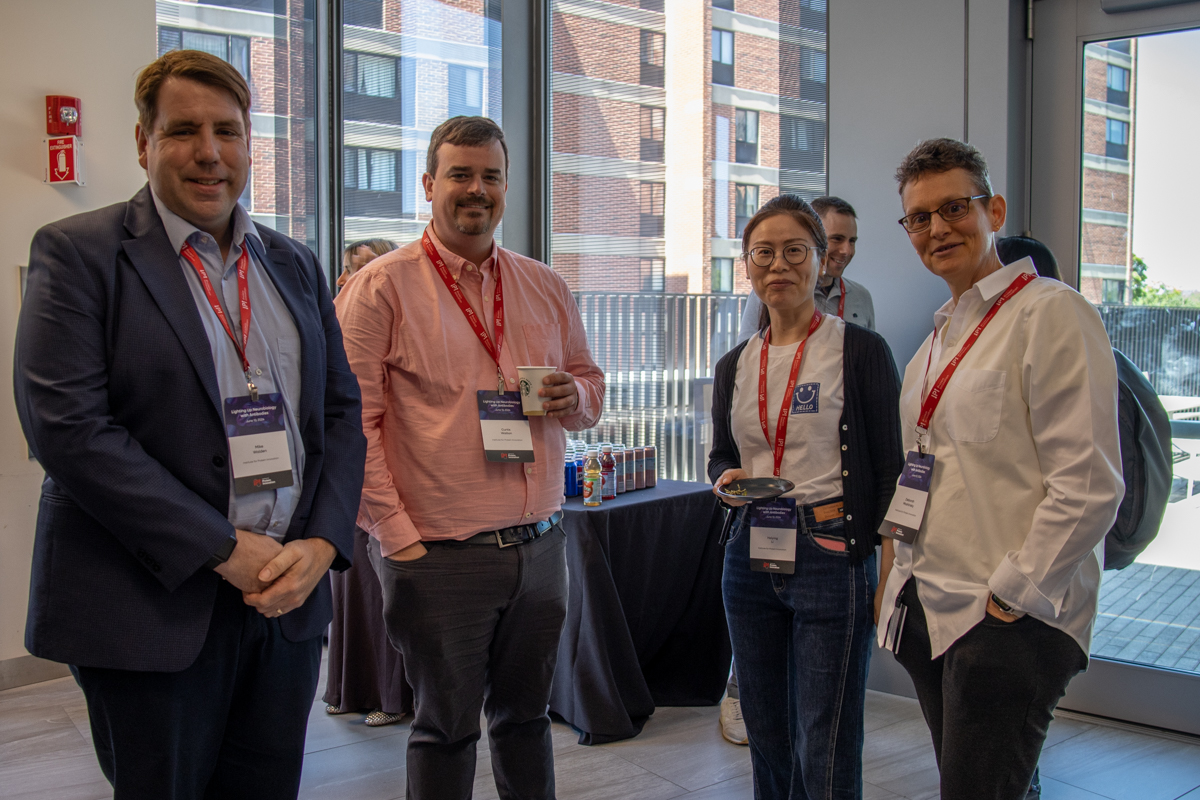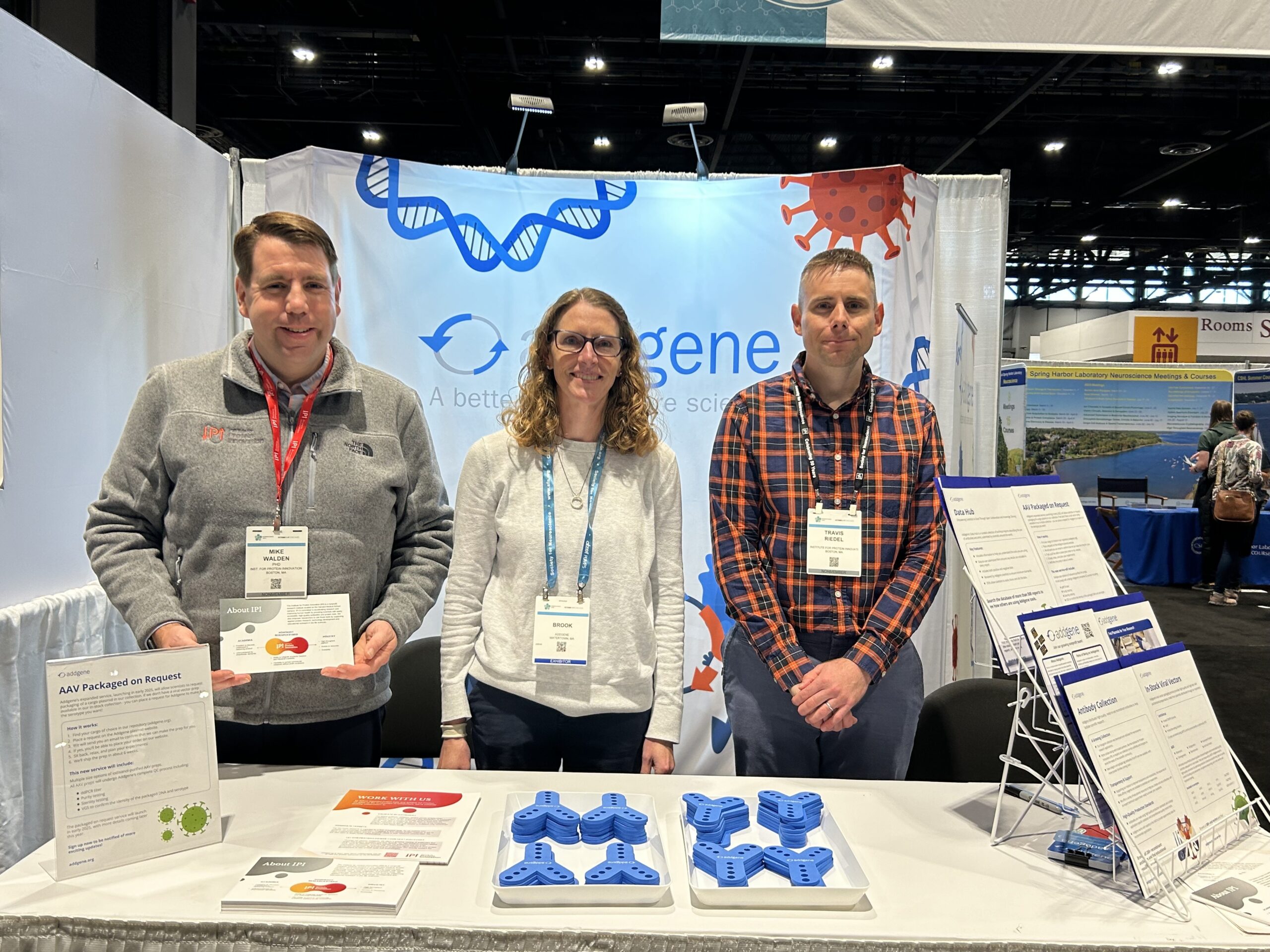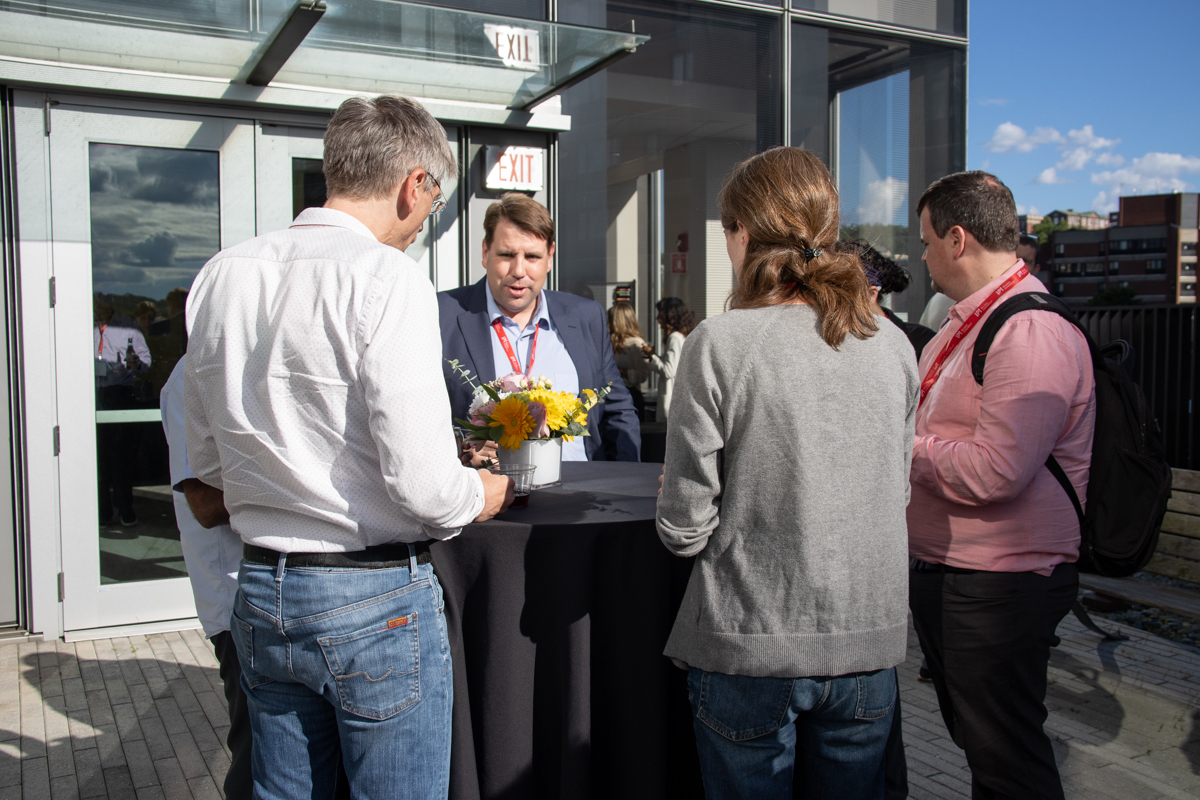Driving commercial development at a nonprofit institution is a challenge. The business models are complex and typically reliant on revenue streams outside profits that benefit shareholders. But when Director of Commercialization Michael Walden joined the Institute for Protein Innovation (IPI) in early 2024, he saw a rare opportunity.
Walden had already faced similar challenges at The Jackson Laboratory (JAX), a nearly 100-year-old research nonprofit. Hearing about IPI from his position at JAX, he saw a chance to contribute to another academic-commercial hybrid, this one at a much earlier stage in its organizational development.
“IPI is still relatively new and small,” he says. “So we’re able to develop processes and engagements across the team,” from the ground up.
Those processes include releasing sets of antibodies in partnership with the nonprofit Addgene, finding unique opportunities to partner with academic and industrial scientists and impacting biomedical communities with protein tools and science.
“I love commercial development at a nonprofit,” Walden says. “It’s highly collaborative, and you are able to play in a different set of playgrounds than those at for-profit companies.”

Channeling interests
As a biology major at Boston College, Walden felt a budding interest in research but found his view of this future murky. He was also working weekends at Massachusetts General Hospital, and he appreciated the research being done there. So instead of walking into his professor’s office to talk hypotheticals, in between assisting patients and doctors he’d stop by the labs and hand out his resume, hoping to be invited through the door.
The tactic worked, and Walden was welcomed into the lab of Michael Laposata, Mass General’s chief of pathology at the time. Laposata provided Walden with first-hand research experience into fatty acid metabolism and its role in alcohol use as well as perhaps an even more important insight: that he consistently gravitated toward protein biochemistry and wanted to know more.
He took that interest to Brandeis University, his “reach” graduate school. There, he worked with Howard Hughes Medical Institute (HHMI) Investigator Christopher Miller on ion channels, the proteins in cellular membranes that control the flow of ions in and out of cells. After earning his doctorate, Walden continued his research into ion channels during a postdoctoral stint at Tufts University — then events took a turn.
A change in latitude
Walden and his wife were new parents, and they wanted to leave Boston to raise their one-year-old child in Maine. Though the area was close to their heart, protein biochemist opportunities were notably few and far between.
But situated along the coast in Bar Harbor, Maine, was JAX, known for its work on genetics, genomics and understanding human disease. And, as luck would have it, JAX-based researcher Simon John was looking for a lab manager to assist with research into neural cell death associated with glaucoma and other neurodegenerative diseases. Walden had never worked with mice or glaucoma, but emphasizing his love of science, he reached out to John anyway. “We both took a leap of faith,” Walden says.
The leap, both up to Bar Harbor and into mouse genetics, paid off. Walden characterizes his work in the John lab as an “exciting, highly educational” period. He benefited from the lab’s mouse genetics expertise and leveraged his own biochemistry knowledge.
After a few years, Walden began to wonder how his academic pursuits tied into the wider drug and research landscape. This curiosity led him, quite literally, across the parking lot to JAX Mice and Clinical Research Services (JMCRS), the commercial arm of the laboratory.
At JMCRS, he began by managing breeding services, leading a team to support the specific supply needs of academic and biotech customers. He then moved to sales and ultimately directed JMCRS’s North American sales, working with researchers worldwide to provide the right tools for basic discovery, platform generation and therapeutic development.
“I found that I enjoy digging in and being a problem solver, helping clients see things from a different perspective and helping them solve difficult technical issues,” he says. “That kind of client focus builds relationships that endure.”
Building something new
Walden now brings his client focus to IPI, as the Institute looks to build the kind of renown in the antibody space that JAX has long enjoyed with its mice.

IPI’s aspirations are lofty: become a home for cutting-edge protein science, educate the next generation of protein scientists and provide top-quality antibodies and other protein reagents to labs worldwide. But Walden, a master at maximizing opportunity, sees a route to realizing this vision.
“We intend to be well known for the highly characterized and documented antibodies we provide,” he says. “To do that, we need to have deep knowledge in our research program. But we also need to develop both academic and commercial partnerships and effectively distribute our products.”
Already, he’s helped launch unique sets of antibodies, which are now being used in labs to target and track integrins, glypicans and various common epitope tags. He has strengthened IPI’s bond with Addgene, a biorepository known for its open science mission and a partner in distributing IPI’s antibodies. He’s working closely with researchers to get to know their specific research needs and build the toolkits necessary to solve a myriad of biological questions, particularly in neurobiology. And Walden is certain this is only the beginning.
“We’re looking to challenge the status quo in the industry and address unmet needs in the research community,” he says. “That’s what success looks like to me.”
Sources: Mike Walden, mike.walden@proteininnovation.org
Writer: Mark Wanner, mrkgenome@gmail.com
About IPI
The Institute for Protein Innovation is pioneering a new approach to scientific discovery and collaboration. As a nonprofit research institute, we provide the biomedical research community with synthetic antibodies and deep protein expertise, empowering scientists to explore fundamental biological processes and pinpoint new targets for therapeutic development. Our mission is to advance protein science to accelerate research and improve human health. For more information, visit proteininnovation.org or follow us on social media, @ipiproteins.


